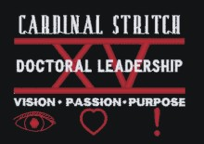And knowledge isn't enough. Leadership is about the act of influencing others. Helping them learn and grow. Sharing the expertise and understandings that the leader has come to know. This is the "learning" part.

All of this that we consider leadership must also be balanced with service. Service to the organization, the willingness to listen instead of just impart or share knowledge. It is a balancing act of influencing others and listening to appreciate differences to continue the leaders own growth and understanding.
Consider the picture at the left. This is a picture from American artist Bill Dan who creates pieces of artwork by balancing rocks and stones of any size on top of each other. While this may sound simple...it is not as easy as it may seem. Bill Dan explains in an interview with Fractal Enlightenment (2008) , "the key to the process is basically 'connection' - if the connection is right between the rocks, then it is on."
International business experts came together at the summer institute this year to talk to us about what is needed to help leaders to succeed in a global society. Al Dertka (2010) stressed the importance of knowing you own value systems and what you are about before trying to understand others. Nelson Solar (2010) stressed the importance of knowing your own value system, but also being very open and willing to understand the systems of others. This is achieved by getting to know what others are about, what their operating principals are, and respecting those differences. Solar, Dertka, and Brennen (2010) stressed that we have to know we are all interconnected, in some way or another.
No matter how you look at it, leadership is a balancing act between leadership, learning, AND service. It isn't about each of those three independent of one another, it is about the connectedness. And if the connection between leadership, learning, and service is right, then it is 'on'!
http://www.fractalenlightenment.com/2008/11/rocky-balancing-act-of-bill-dan.html
Dertka, A., Soler, N., Brennen, C., & Prisling, J. (2010, June). International panel of business and non-profit leaders. Lecture delivered at Summer Institute at Cardinal Stritch University, Milwaukee, WI.




